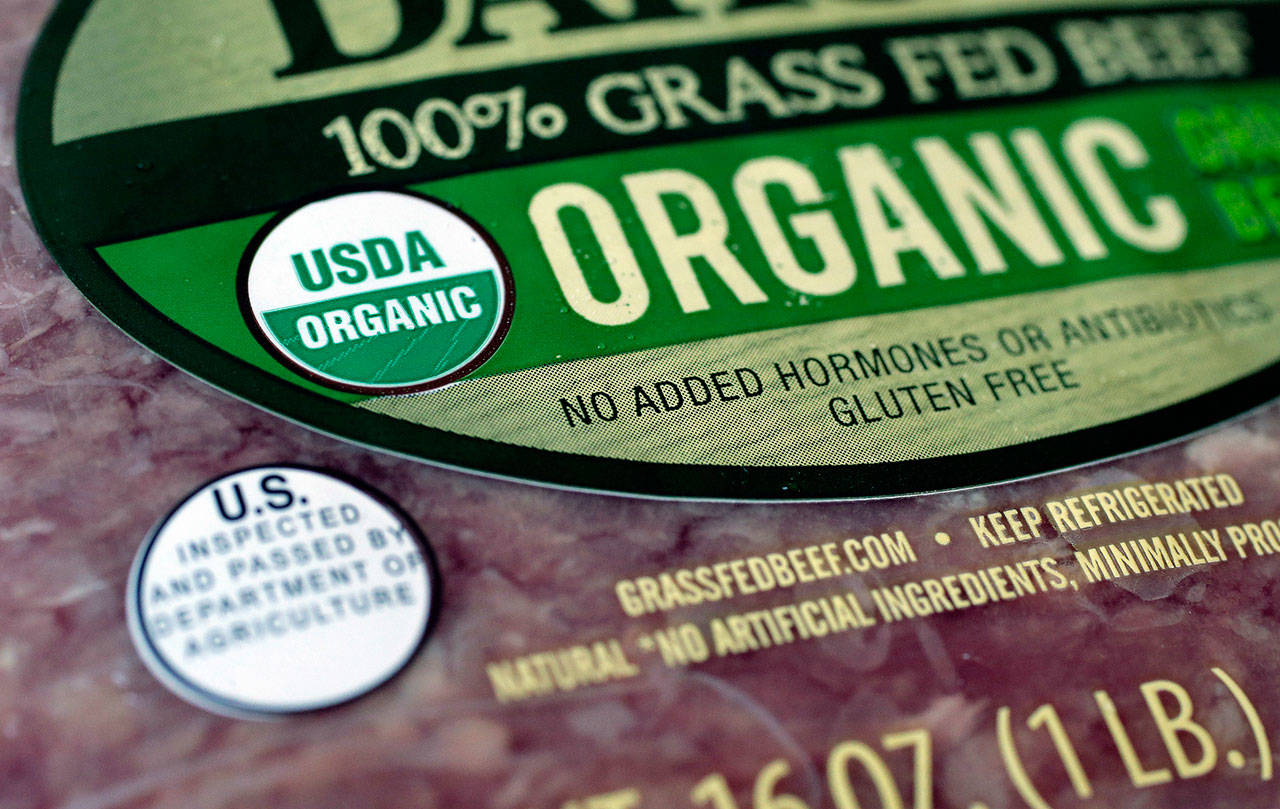By Lauren Schwahn / NerdWallet
Sustainability, labor conditions, politics and other issues prevalent in the news have left many consumers wondering how to be socially responsible. For some, this seems like an impossible task.
“Trying to create a perfect world or be a perfect consumer is not at all realistic,” says Dr. Ellis Jones, author of “The Better World Shopping Guide” and assistant professor of sociology at College of the Holy Cross in Worcester, Massachusetts. “We just have to try our best to practice and get better at navigating this so that collectively, our dollars start moving things in the right direction.”
Shopping ethically starts with educating yourself and supporting the products and companies that align with your values. Here’s what you can do to become a more ethical consumer.
1. Check certifications and ratings
Labels such as “Fair Trade Certified” or “USDA Organic ” signify that a product’s supply chain has gone through some level of vetting. However, standards can vary widely.
“It’s not that those labels are meaningless, it’s that their meaning has been watered down,” Jones says. “Most consumers don’t have enough information to know whether that particular fair trade certification, organic certification or sustainable seafood certification is a weak one or a strong one.”
Jones considers the B Corporation Certification , which companies such as Patagonia and Seventh Generation have earned, the current gold standard. It takes a comprehensive look not just at products, but at entire companies’ social and environmental impacts. This includes assessing factors like energy usage and workers’ wages. But the rigorous certification process makes this label harder to find.
In general, Jones says the more seals or certifications a product or company has, the better. When in doubt, turn to third-party organizations for guidance. For example, the Cornucopia Institute, a nonprofit watchdog group, rates farms and manufacturers of items like yogurt, eggs and toothpaste.
2. Shop less often
Overconsumption takes a toll on our wallets and the planet. Before buying something, think about whether you really need it. If you do, look for options that have a lesser impact, says Casey Taylor, a partner in Bain and Company’s retail practice. Investing in reusable, high-quality or easy-to-repair items can help minimize purchases.
“Instead of buying a new shirt from a fast-fashion retailer, you might think about buying used or buying pieces that’ll last longer,” Taylor says.
3. Seek secondhand goods
When you choose previously owned items, you aren’t contributing to the labor and materials needed to make new goods. Check thrift shops, garage sales and community groups like the Freecycle Network for inexpensive — or free — finds. Another sustainable solution? Rent clothes through services like Le Tote and Rent the Runway.
4. Choose slower online deliveries
Retailers like Amazon have made selecting fast shipping a reflex, but it’s not always the most ethical option. When shopping online, choosing standard shipping over same-day or next-day delivery can ensure multiple items in an order ship together.
“For the environment, it reduces packaging and the number of drop-offs, and for customers, it’s just one less box that you need to recycle,” Taylor says.
Better yet, shop in person or buy online and pick up in store.
5. Shop locally
Visit your neighborhood bakery or farmers market rather than a large chain. Supporting local businesses or buying locally grown produce is generally better for the environment because it decreases the distance that products have to travel, Taylor says. It also gives consumers the opportunity to ask merchants directly for details about how products are sourced and made.
6. Pick a responsible financial institution
Financial institutions and products are part of the equation, too, Jones says. You can search for a bank or credit union that’s committed to social and environmental values. Community development financial institutions, for example, help underserved consumers build credit and acquire loans.
Some credit cards automatically donate to charitable causes like nature conservation and cancer research with every purchase. Consider applying for one that donates to causes important to you.
7. Be prepared
Find small ways to make the ethical choice the easy choice. You can reduce waste by keeping reusable shopping bags or a coffee cup in the car or by the front door. That way, you’ll have them when you need them.
“Simple choices add up if you think about the number of times that you walk into a store or pop by a coffee shop,” Taylor says.
Developing positive habits takes practice. But with a little effort, shopping ethically can become second nature.
Links
3 steps to avoid fake organics: http://bit.ly/nerdwallet-avoid-fake-organics
Certified B Corporations: https://bcorporation.net/about-b-corps
The Freecycle Network https://www.freecycle.org
Talk to us
> Give us your news tips.
> Send us a letter to the editor.
> More Herald contact information.

























